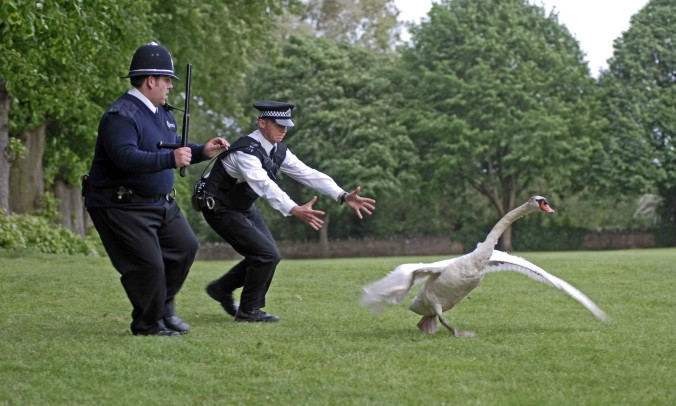 The first recorded example of “wild-goose chase” came in Shakespeare’s Romeo and Juliet. In Act 2, Scene 4, Mercutio and Romeo are joking around with each other, saying:
The first recorded example of “wild-goose chase” came in Shakespeare’s Romeo and Juliet. In Act 2, Scene 4, Mercutio and Romeo are joking around with each other, saying:
Mercutio: Come between us, good Benvolio, my wits faints.
Romeo: Swits and spurs, swits and spurs, or I’ll cry a match.
Mercutio: Nay, if our wits run the wild-goose chase, I am done;
For thou hast more of the wild goose in one of thy wits
Than, I am sure, I have in my whole five. Was I with you
There for the goose? (64-69)
They are spitting jokes at each other, but Romeo is the better banterer. Mercutio can’t keep up with Romeo and the changing topics; saying it’s a wild-goose chase having to follow Romeo.
The expression’s inference is literal. When a flock of wild geese are flying, they follow the path of the leader which often inconsistent and unpredictable. However, the figure of speech has changed a little for modern times since Mercutio said it, as we focus more on the sense that we’re chasing an unattainable goal. For instance, someone might be on a wild-goose chase if they’re going around looking for a building that has actually been torn down.
Several films within the past few decades use tracking devices to induce a wild-goose chases within the plot. In Total Recall with Arnold Schwarzenegger, for example, a tracking device is removed from a person and inserted in food to give to rats. Instead of tracking the person, now the tracker would unknowingly be searching to find the rat who ate the device—averting the attention away from the original person.